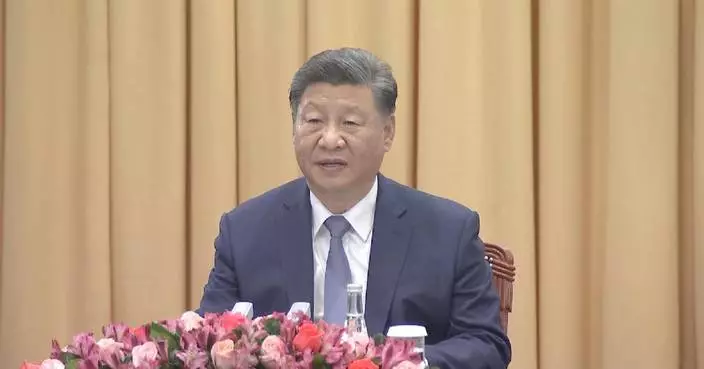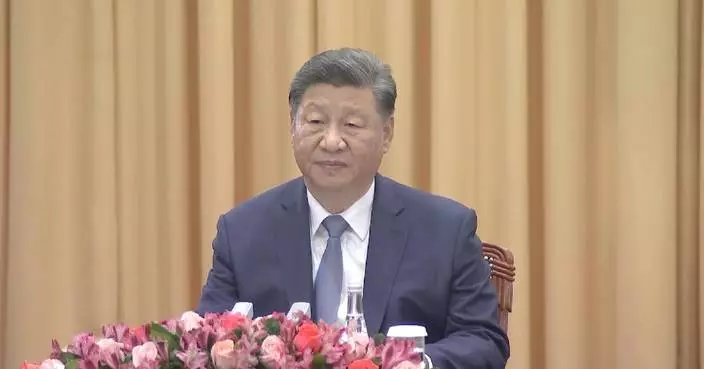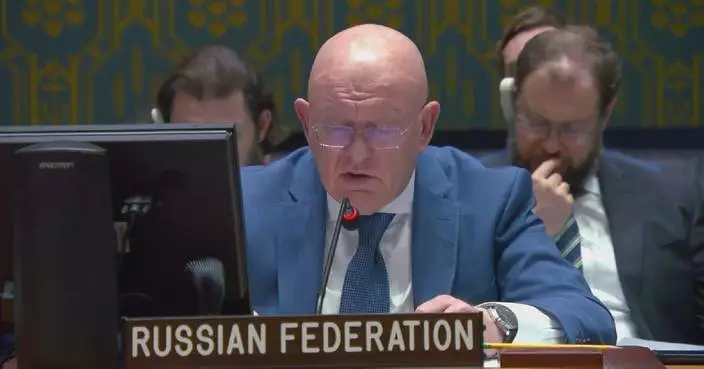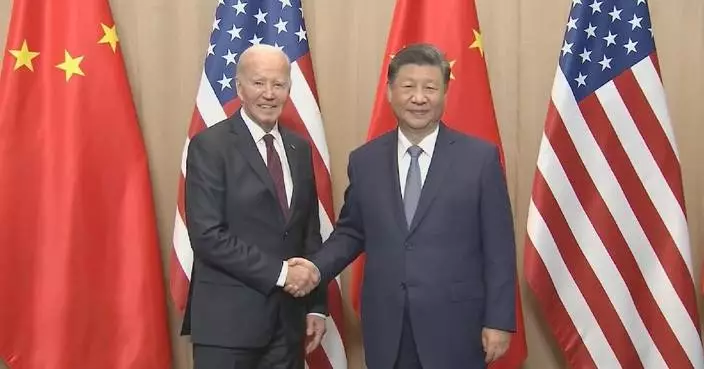A survey conducted by China Global Television Network (CGTN) and the Renmin University of China through the New Era Institute of International Communication, covering 7,658 respondents across 38 countries, revealed that 83.5 percent of respondents positively evaluated China's efforts and contributions to global climate governance.
The results of the survey show that the respondents believe that China's proactive actions in addressing climate change have instilled confidence and strength in the collective effort to build a clean and beautiful world.
In recent years, China has been accelerating its green transition. By 2022, China's carbon emission intensity had decreased by over 51 percent compared to 2005. As of June 2023, more than half of the world's new energy vehicles were on the roads in China. China's installed capacity for wind and photovoltaic power has ranked first globally for many years. Both the forest acreage and forest stock volume have continued to grow, with China ranking the first worldwide in the area of planted forests.
Among global respondents, 83.5 percent believe that China has made positive progress in controlling greenhouse gas emissions, 80.3 percent think that China has set an example for the international community in promoting clean energy infrastructure, 80.2 percent agree with China's efforts to promote green transformation in traditional industries, 85.4 percent appreciate China's efforts in afforestation and increasing green coverage, and 82.4 percent believe that China's accelerated shift toward clean energy demonstrates ambition and resolve in addressing global climate change.
China is actively working to address climate change domestically while also supporting more Global South countries in building their capacity to combat climate change. Efforts include providing Africa with climate remote sensing satellites, photovoltaic power generation systems and lighting equipment, as well as establishing low-carbon demonstration zones in Southeast Asia.
In the survey, 82.6 percent of global respondents view China's efforts to help other developing countries tackle climate change positively, and 82.7 percent believe China has contributed valuable insights and solutions to global climate governance.
The Earth is humanity's shared and only home. China places great importance on addressing climate change, and actively tackling it has become a national strategy. China has enshrined the concept of ecological civilization in the Constitution and has incorporated climate action into its national economic and social development plans.
In response, 79.7 percent of global respondents believe this demonstrates China's firm commitment and sense of responsibility in climate governance, and 85.3 percent view China as a leader and key participant in global climate governance.
The survey included respondents from developed countries, such as the United States, Germany and Japan, as well as developing countries, such as Argentina, India and Kenya.
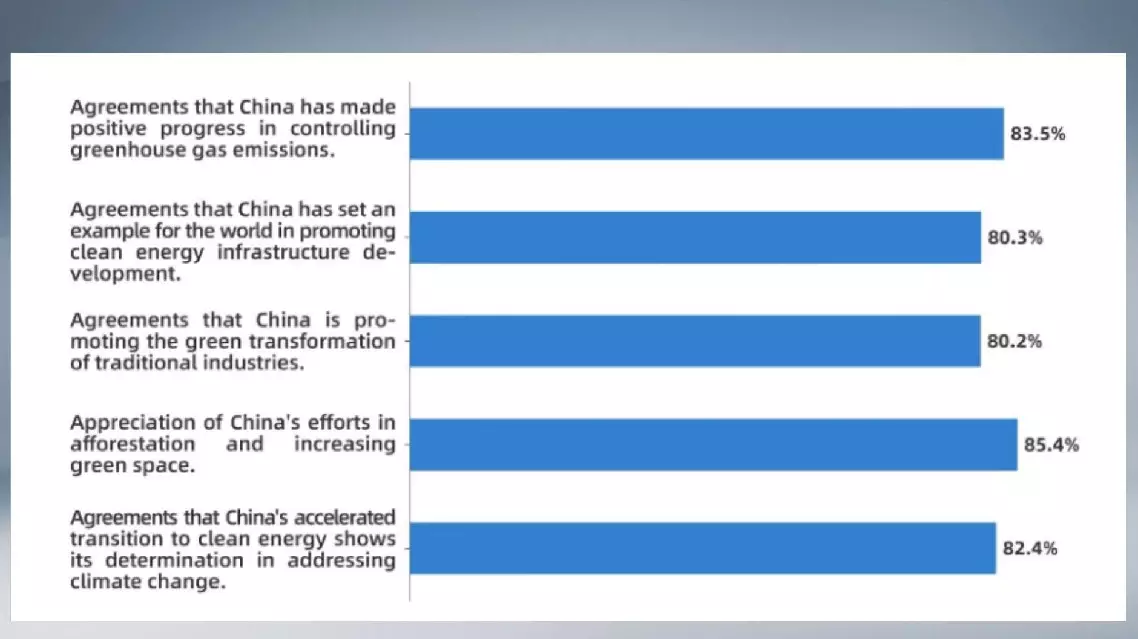
China's actions drive climate governance: CGTN survey
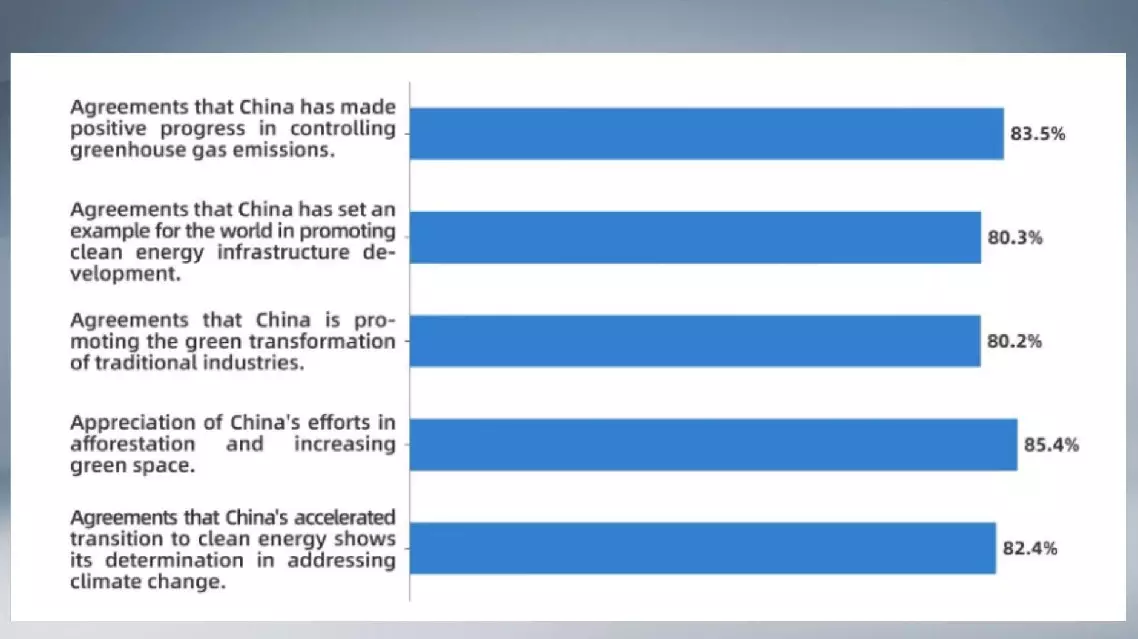
China's actions drive climate governance: CGTN survey
Scholars around the world speak highly of Chinese President Xi Jinping's speech at the 31st APEC Economic Leaders' Meeting, where he stressed the need for global cooperation and integration amid growing uncertainty and protectionism.
Xi delivered the important speech at the APEC meeting in Lima, capital of Peru, on Saturday, under the title "Shouldering Responsibility to Our Times And Jointly Promoting Asia-Pacific Development."
The message delivered by Xi focuses on the global trade challenges today, advocating for a more open economy and the removal of unreasonable trade barriers, said Robert Hanlon, principal investigator of the Canada and Asia Pacific Policy Project at Thompson Rivers University.
"I think the world is continuously seeing new uncertainty, and there is quite a bit of protectionist challenges out there. And so I think President Xi's speech spoke quite correctly to work, to try to break down those barriers, creating more open economies and advocating free trade in the Asia-Pacific region. These are very important development strategies for not only the countries of the Asia-Pacific region but also the Global South in general. There are six billion people that live in the Global South. Thus, to improve development and to create more capacity and opportunity really requires opening-up and cooperation. So I think the message of cooperation is something that's very strong," he said.
Sizo Nkala, research fellow at the Center for Africa-China Studies at the University of Johannesburg, highlighted China's crucial role in driving economic growth both in the Asia-Pacific region and globally, with its substantial investments in overseas green energy and infrastructure projects.
"I think his message is a message of cooperation, is a message of integration within the APEC region, which is important for not only the region itself but also for the global economy, because the APEC region is one of the biggest contributors to the global economy, with a share of 62 percent of the global GDP, so we cannot overemphasize its importance to the global economy. China is one of the biggest investors in the Asia-Pacific region. Through the Belt and Road Initiative, it has invested in mega infrastructure projects across the Asia-Pacific region, in transport, in imports, in railway networks, and in also digital technology, as well as, importantly, the green energy projects, your solar and wind energy projects, which are important for the global transition to a greener economy," said Nkala.
In the speech, Xi noted that Asia-Pacific cooperation is confronted with challenges such as rising tendencies of geopolitics, unilateralism and protectionism. He said that at this historic crossroads, Asia-Pacific countries carry greater responsibilities on their shoulders.
"The spirit of President Xi Jinping's speech at the summit in Lima is rooted in his concern about the growing trend of a closed world economy. He has hinted that, in a world where economic globalization still prevails, it is necessary to contribute to greater economic openness and put an end to protectionism," said Jorge Malena, director of Asian Affairs Committee, Argentine Council for International Relations.

International scholars commend Xi's APEC speech on global cooperation, integration







